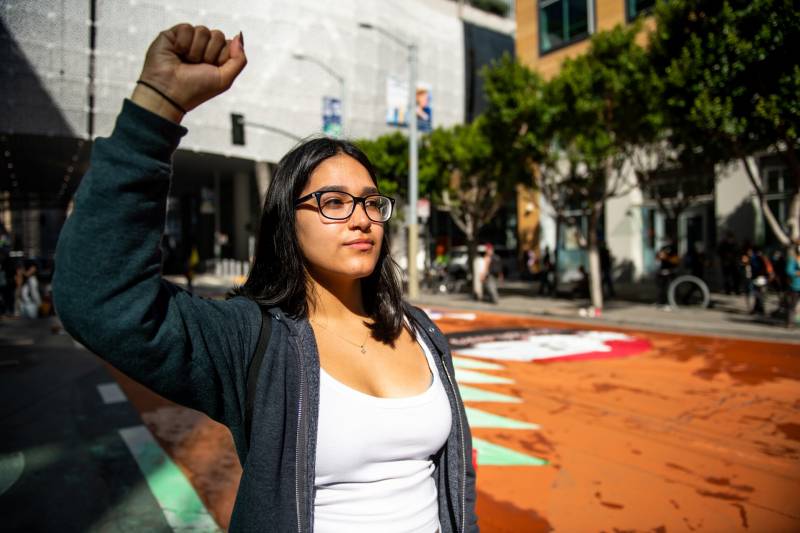KQED climate reporter Raquel Maria Dillon interviewed Ibarra about how she sees the climate change activists shifting their focus to health and people, and scrutinizing the systems of power that allow the exploitation of nature for profit.
This interview has been lightly edited for length and clarity.
Why did you get involved in climate activism?
Growing up, any time I heard about climate change and climate justice on news, social media or any kind of outlet, I never really saw people that looked like me — [people who are] poor, low income, Black, indigenous or people of color.
I saw upper-middle class people. I saw white people who were talking about the planet and the animals, but they weren’t necessarily talking about the people being impacted, like my community of Richmond.
Climate justice is not just about the planet, it’s about all of the people living on the planet. Everything is intersected and interconnected, so you can’t be talking about one issue without talking about all of the others.
How has fossil fuel production affected you personally?
I live in Richmond, where we have the Chevron refinery right in our backyards, and I’ve lived with this refinery my entire life, and I’m used to consistent flaring, oil spills, explosions, terrible air quality and all of this. It affects me personally.
Are you hopeful about the big conference in Scotland?
These people are in huge positions of power. They can make the decision on whether people in my community deserve the right to breathe clean air and the right to a better quality of life. They have the power to make a lot of changes.
Climate justice is forever a part of my life, and it should be part of everyone’s life. Everyone has a moral obligation to be a part of the movement. [Climate change] is something that impacts everyone and will impact everyone, in one way or another.
When thinking about climate justice, you can’t speak on it without speaking on racial justice, economic justice, gender justice and all of these other systems of oppression that have [helped create] the issues that we’re facing, including climate change. Everyone belongs in this movement. Even if you feel like you don’t know [the right] terms, or you feel like you don’t belong. Just know, that you do and it needs to include everyone.

